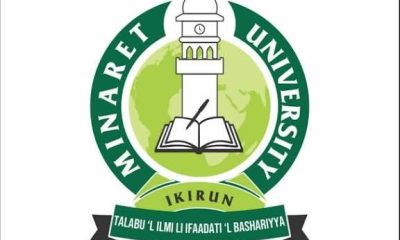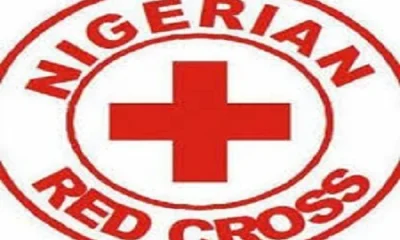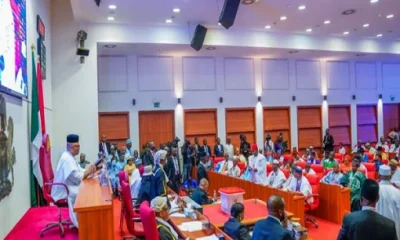News
Lagos Cholera Outbreak: Death Toll Rises To 21, Cases Hit 401

The cholera outbreak in Lagos State continues to spread, with the number of suspected cases increasing to 401 and the death toll rising to 21.
According to the Special Adviser to the Lagos State Governor on Health, Dr. Kemi Ogunyemi, the majority of the cases were reported in Lagos Island, Kosofe, and Eti Osa.
Cholera is a food and water-borne disease caused by the ingestion of the bacteria Vibrio cholerae in contaminated water and food. If left untreated, the severe forms of the disease can kill within hours.
The Lagos State Government has assured residents that measures are being taken to curb the spread of the disease, including the collection of water, food, and beverage samples to identify the source of contamination.
Residents are advised to remain vigilant, practice good hand hygiene, and participate in community sanitation activities to stop the spread of cholera.
According to Ogunyemi, Cholera treatment is provided free of charge at all public health facilities, and citizens are encouraged to seek medical attention immediately if they experience symptoms such as watery diarrhea, vomiting, abdominal pain, general malaise, and fever.
The Lagos State Government has expressed appreciation to local, national, and international partners, including UNICEF, WHO, NCDC, NIMR, Red Cross, and others, for their support in combating the outbreak.
Ogunyemi said, the rise in cases was anticipated following the Ileya festivities, during which large gatherings occurred.
She, however, noted that suspected cases are subsiding across Local Government Areas, particularly in previously affected LGAs due to the state government’s interventions and surveillance efforts.
The Special Adviser stated that the government, through the Ministry of Health and other sister agencies, is maintaining rigorous surveillance and monitoring of the situation and implementing planned programs and activities to curb the spread.
“The Ministry of Health, in collaboration with the State Ministry of Environment and its agency, the Lagos State Environmental Protection Agency, continues to collect samples of water sources, food, and beverages to identify the source of contamination. We have also intensified our surveillance activities in communities, particularly in affected local government areas, to address the situation head-on.
“We are also working with the Ministry of Basic and Secondary Education as well as the Ministry of Tertiary Education to ensure all precautions are taken in our schools to protect children and scholars as they return. Residents must, however, remain vigilant, practice good hand hygiene, and participate in community sanitation activities to stop the spread of cholera,” she stated.
She advised that citizens seek medical attention immediately if they experience symptoms such as watery diarrhea, vomiting, abdominal pain, general malaise, and fever, stressing that cholera treatment is provided free of charge at all public health facilities.
While noting that Governor Babajide Sanwo-Olu remains committed to ensuring that residents of Lagos receive quality and affordable health care, the Special Adviser extended the gratitude of the State Government to local, national, and international partners—including the United Nations Children’s Fund, the World Health Organisation, the Nigeria Centre for Disease Control and Prevention, the Nigerian Institute for Medical Research, Red Cross, and others—for their support in combating the outbreak.
“Appreciation is also extended to the dedicated team of doctors, nurses, pharmacists, lab scientists, environmental health officers, Water Corporation officers, surveillance officers, heads of agencies, members of PHEOC, and volunteers who are working around the clock to combat the disease and keep Lagos safe,” Ogunyemi said.
-

 News4 days ago
News4 days agoAdeleke Commissions Minaret University, Reaffirms Osun’s Leadership in Education
-

 News4 days ago
News4 days agoIslamic Leaders Announce February 18 As First Day Of Ramadan Fast
-

 News4 days ago
News4 days agoNollywood Actress Aunty Ajara Dies After Illness
-

 News4 days ago
News4 days agoShoppi by BRAW Supermarket Unveiled In Osogbo To Boost State’s Economy -CEO Adejuwon Adebusayo













